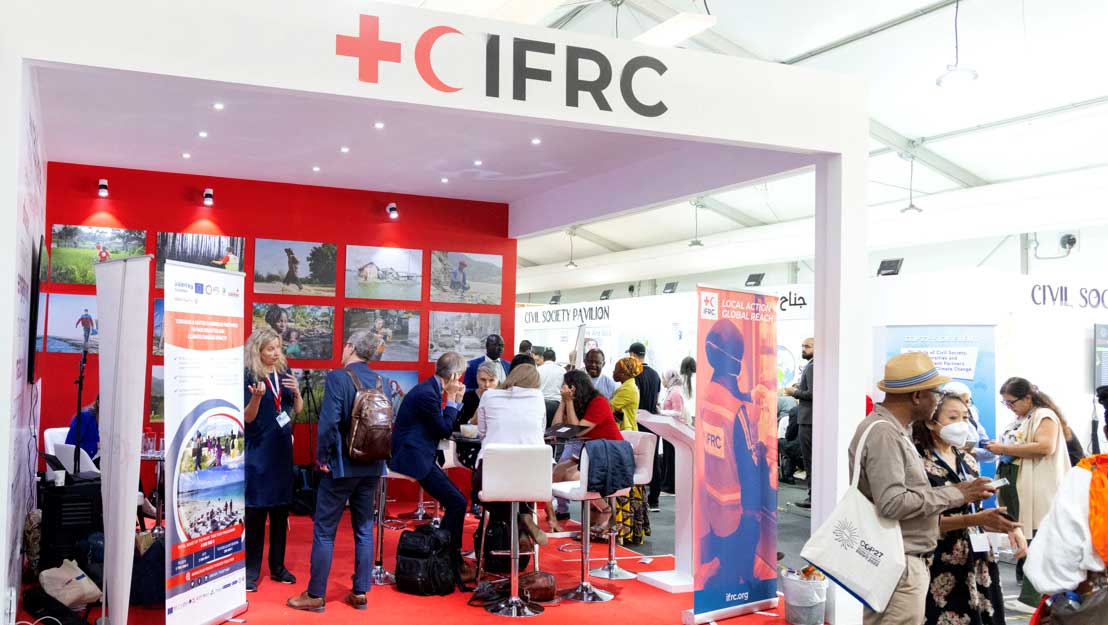
The OECS and the French Red Cross (FRC) through its Regional Platform for the Americas and the Caribbean (PIRAC), hosted a side event at COP27 – the 2022 United Nations Climate Change Conference – in Sharm El Sheikh Egypt. The event highlighted the PIRAC’s support to OECS Member States in the aftermath of major disasters, and the execution of projects aimed at strengthening their climate resilience and disaster preparedness.
The February 2022 report from the Intergovernmental Panel on Climate Change (IPCC) provides unequivocal evidence that climate change is gravely contributing to humanitarian crisis and that the impacts on already vulnerable people are far worse and happening at a faster pace than anticipated. The consequences are already visible in the Caribbean, a region particularly threatened by various types of disasters: rising waters, floods, hurricanes, drought, etc.
Speaking at the event, Ninni Ikkala Nyman, the International Federation of Red Cross and Red Crescent Societies (IFRC) Climate and resilience Disasters, Climate and Crisis lead said, “At the Red Cross, we focus on the local level – local and vulnerable communities. Caribbean communities are at the forefront of the climate crisis. Local responders, like National Red Cross, are embedded in the communities they serve, before, during, and after disasters hit. They are uniquely placed to provide assistance when and where it is needed the most, and with the greatest impact, but can only do so with adequate resources.”
The PIRAC is currently implementing the READY Together / 3 Oceans project in collaboration with the OECS and the IFRC in five OECS Member States, namely, Antigua and Barbuda, Dominica, Guadeloupe, Martinique, Saint Lucia, and St. Vincent and the Grenadines. The project is funded by the INTERREG Caribbean, the French Development Agency (AFD), and the Guadeloupe Region, and seeks to help Caribbean countries respond to disasters by strengthening emergency preparedness, improving economic actors’ resilience, raising public awareness of risks and climate change, and leading research and innovation on climate issues.
Mr. Crispin d’Auvergne, OECS Programme Director for Climate Change and Disaster Risk Management said that “Over the years, the OECS Commission has worked closely with the PIRAC in these islands because they have similar needs, similar concerns, and while they are not identical, they have many similar characteristics on the same scale, and it is crucial to improve coordination between them.”
At COP27, the PIRAC and the OECS advocated for better preparedness to reduce the impacts of disasters linked to climate change. Acting now is vital to change the future of Caribbean citizens. The most vulnerable must be prioritized, the amount and accessibility of climate finance must increase, legislations and policies must be strengthened, and populations must be aware of risks and solutions.













